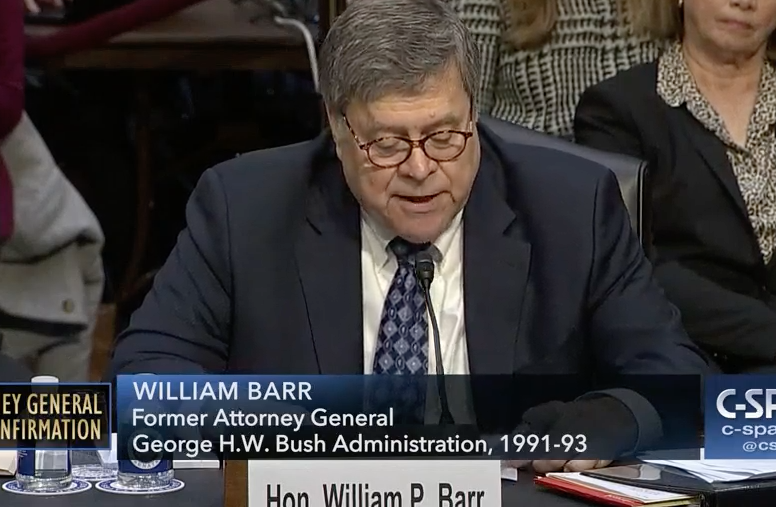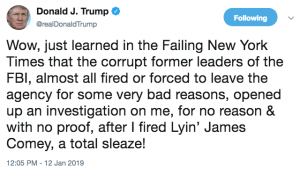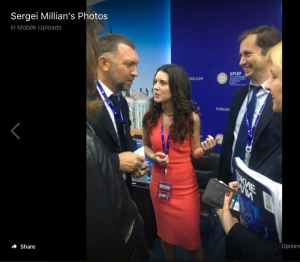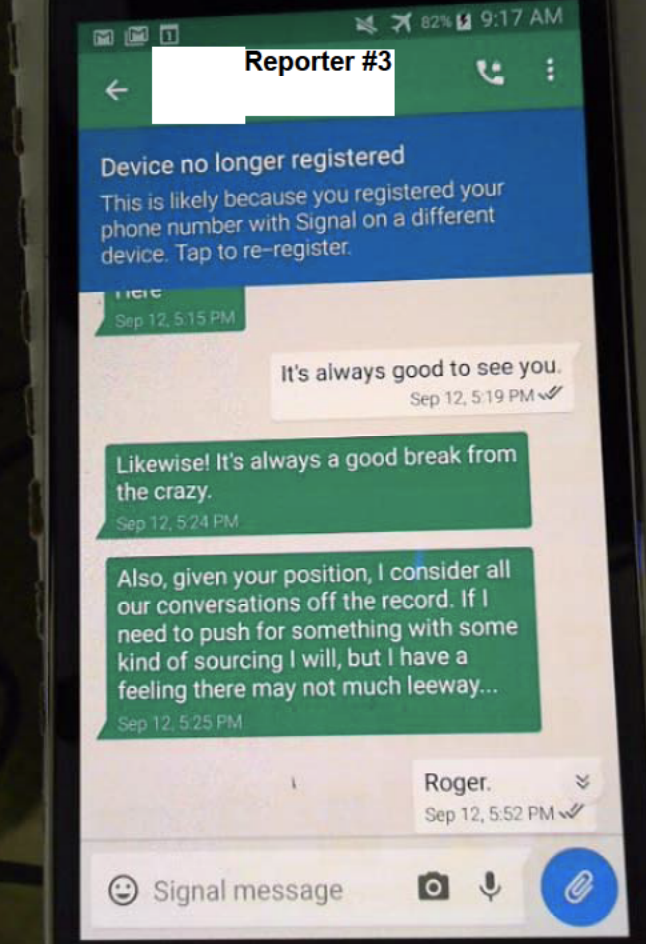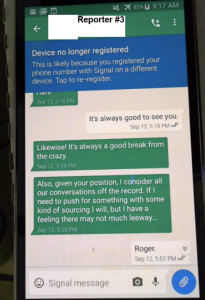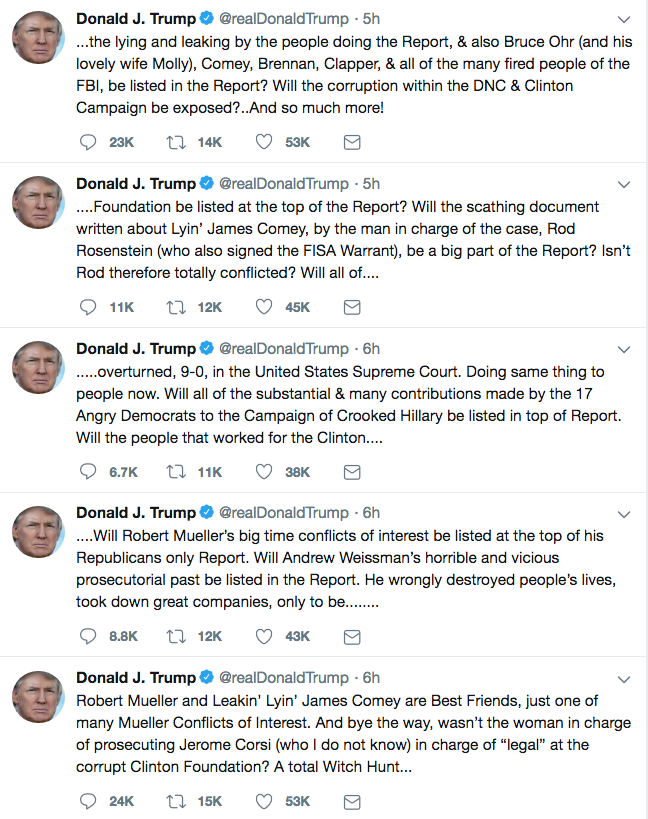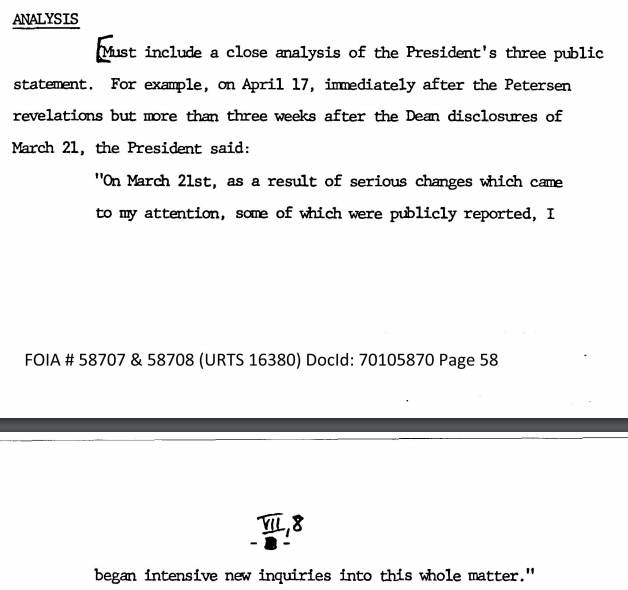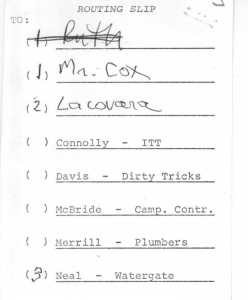The House Intelligence Committee Can and Should Subpoena the 18-Minute Gap on the Trump Tower Deal
Over the last few days the following happened:
- Buzzfeed published a story stating what the evidence already shows: Trump suborned perjury
- Mueller’s spox Peter Carr issued an unprecedented rebuttal to a specific story
- WaPo, in a story presenting DOJ’s side of events, revealed that someone from Rod Rosenstein’s office (probably Ed O’Callaghan, who has managed most interactions with Mueller’s office) called to ask them if they were going to issue such a statement
I am not certain whether the call from Rosenstein’s office violated Special Counsel regulations protecting the Special Counsel from day-to-day interference in the office, but it certainly is something Jerry Nadler’s committee should inquire about.
And while I think Mueller’s office can make a very good case they needed to respond to Buzzfeed’s story for prosecutorial reasons, Rosenstein’s involvement seems far more suspect, particularly since he’s the guy who set the new DOJ standard that even warning a journalist off a story, as former FBI General Counsel Jim Baker did, may get you disciplined or referred for prosecution. By all appearances, Peter Carr was playing by Rosenstein’s rules in his interactions with Buzzfeed, so Rosenstein is the last person who should weigh in if he doesn’t like the outcome.
But — in addition to House Judiciary Committee (HJC) asking DOJ about contacts between Rosenstein’s office and Mueller’s, as well as contacts between Big Dick Toilet Salesman Matt Whitaker and Rosenstein and contacts between the White House and either one — Congress has a means of pursuing this question that should not harm Mueller’s investigation: Subpoena the information that Cohen, Felix Sater, the Trump Organization, and the campaign withheld from the House Intelligence Committee so as to sustain Cohen’s false testimony through March 22, 2018.
I’ve put the section of the House Intelligence Report that deals with the Trump Tower deal below, with the claims we now know to be false underlined. In addition to a caveat that the findings in the section are based on the documents turned over to the committee, the section includes the following claims we now know to be false given Cohen’s statement of the offense and/or Buzzfeeed’s extensive report on the deal:
- The report claims the deal died in January but communications (which may or may not be limited to text messages) between Sater and Cohen show that it continued (at least) through June and Buzzfeed suggests the communications extended into July. Rudy Giuliani today stated publicly it may have gone through November.
- The report claims Cohen was working with Sater’s company, which may or may not be true. But Buzzfeed makes it clear there should be an October 2015 email between Sater and Cohen — sent weeks before Trump signed the Letter of Intent — showing that VTB, a sanctioned bank, would provide financing. A December 19, 2015 communication (it’s unclear whether email or text) would have showed VTB would host Cohen. On December 31, 2015, Sater sent an image showing another sanctioned bank, GenBank, would instead provide financing. There would also be a letter dated late January from Andrey Ryabinskiy, a Russian mortgage tycoon.
- The report claims Cohen never received a response from anyone associated with the Russian government. But Cohen received a January 20, 2016 email from Dmitry Peskov’s personal assistant, and his call records would reflect a 20 minute call to the number she provided him to call her on.
- Sater claimed to HPSCI that his claims about Putin’s involvement was “mere puffery” and that “neither President Putin nor any element of the Russian government was actually directly involved in the project.” Yet on January 21, Sater wrote Cohen, “It’s about [Putin] they called today,” which would show still more response to Cohen from the Russian government. And a May 5 text message from Sater to Cohen conveyed Dmitry Peskov’s invitation to attend the St. Petersburg Forum, at which Cohen could discuss the deal with Peskov and he might meet Putin personally.
- The report says the deal failed because the due diligence failed and Trump Organization’s representative (it’s unclear whether this would be Cohen, Sater, or someone else) lost confidence in the licensee. That’s almost certainly not consistent with whatever reason Cohen gave Sater on June 14, three hours after WaPo reported that Russia had hacked the DNC, to say he would not be traveling to St. Petersburg after all. There may well be discussion of the WaPo report in the four texts Sater sent Cohen. There also may be communication reflecting Cohen’s assurances that “We’ll go after Cleveland.”
- The report says the potential licensing deal was not related to the campaign but Cohen, “asked a senior campaign official about potential business travel to Russia.” It’s unclear whether there’s a paper trail of that or not. But there are communications reflecting Cohen’s consideration of other campaign events — definitely the Convention and probably the WaPo report on the DNC hack. And there should be communications showing it go through November, only to be halted — or rather, moved under Segei Millian and George Papadopoulos — once Trump got elected.
While it’s possible the House Intelligence Committee (HPSCI) received the 2015 communications indicating that Trump contemplated working with sanctioned banks during the time he was running for President (in which case it would be scandalous that the Republicans suppressed that detail, and the one that a former GRU officer was involved), much of the rest of these communications could not have been turned over to HPSCI when they requested documents in 2017. While some of the communications are limited to texts between Sater and Cohen, at least some of this paper trail (including Cohen’s meetings with Trump and Don Jr about it) would either reside at the campaign or Trump Organization (or both).
Remember, when SDNY got a warrant — one naming “many” thus far uncharged people — to raid Michael Cohen a month after subpoenaing Trump Organization, they explained there was a concern that documents would get destroyed.
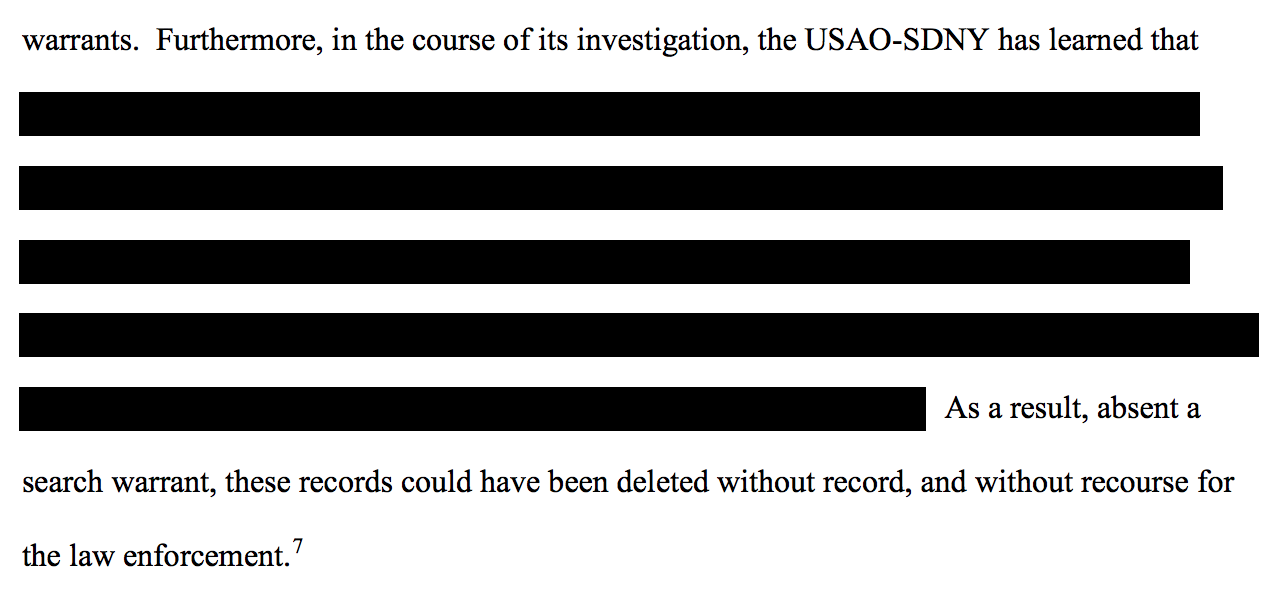
One of the filings on Cohen (I’m still trying to chase down this reference) suggests Mueller had to get his communications on this matter from someone else. It seems likely Mueller had to get the text messages from Sater’s phone (or perhaps even from forensics on Cohen’s own phone).
Nevertheless, the public record identifies an abundant paper trail that should have been turned over to HPSCI, Senate Intelligence Committee (SSCI), and Senate Judiciary Committee (SJC), but could not have been, given what HPSCI reported last March. Additionally, Don Jr’s testimony to HPSCI is necessarily inconsistent with his SJC, yet still appears to include false claims about the Trump Tower deal (though some got cleaned up between his September testimony to SJC and his December testimony to HPSCI).
While Cohen was initially formally subpoenaed (though possibly only for Steele dossier documents), Trump Organization, Felix Sater, and the campaign were not.
Adam Schiff’s committee can make an important first step to clear up questions about the degree to which Trump only tacitly permitted Cohen, Sater, and his spawn to lie to Congress, or whether — as was the case with the June 9 response — his lawyers worked directly with witnesses to craft a false message to the public and Congress. If the June 9 response is any indication, there should be communications directly between Alan Futerfas or Garten with Cohen as he crafted his false story, which would go a long way to showing that their ultimate client suborned perjury.
Rosenstein’s intervention with Mueller’s office regarding Friday’s statement suggests that he, the Big Dick Toilet Salesman, or their boss, may be trying to tamp down discussions about Trump participating in Cohen’s lies. But because the discovery to HPSCI was so obviously incomplete, that committee has an available significant first step that could answer that question themselves, with little opportunity for DOJ to prevent that (and, given that the documents have already been identified in Buzzfeed’s story already, probably little risk of damaging the Mueller investigation in the way that further Cohen testimony might).
It may not be the kind of showboat witness testimony Schiff seems most interested in right now. But he has the ability to demand all the documents that show what details Cohen, Sater, and the President’s company and campaign knew to withhold to sustain Cohen’s lies. That — and a request for any communications about this matter, both in 2017 and in the wake of last year’s raid on Cohen — would go a long way towards answering a question that only Congress can deal with anyway: the degree to which Donald Trump orchestrated his lawyers’ lies about his ongoing business negotiations with Russia while Russia was helping him get elected.
House Intelligence Report
In approximately September 2015, he received a separate proposal for Trump Tower Moscow from a businessman named [Sater] According to Cohen, the concept of the project was that “[t]he Trump Organization would lend its name and management skills, but It was not going to borrow any money and it would not have any resulting debt for the purchase of the land and the building of the facility.”;~ Cohen worked on this idea with [Sater] and his company, the Bayrock Group, a real estate consultancy that had previously worked with the Trump Organization.
[gratuitous paragraph on what a colorful fellow Sater is]
(U) After signing a letter of intent with a local developer in October 2015,36 Cohen and [Sater] exchanged a number of emails and text messages in late 2015 detailing their attempts to move the project forward. For instance, in December 2015, [Sater] tried to get Cohen and candidate Trump to travel to Russia to work on the project.
(U) Several of [Sater’s] communications with Cohen involved an attempt to broker a meeting or other ties between candidate Trump and President Putin, and purported to convey Russian government interest in the project. Perhaps most notably, [Sater] told Cohen in a November 3, 2015, email, “[b]uddy our boy can become President of the USA and we can engineer it.” 39 [Sater] continued that if “Putin gets on stage with Donald for a ribbon cutting for Trump Moscow, . .. Donald owns the republican nomination.” 10 This assertion apparently arose from [Sater’s] rather grandiose theory that cementing a deal with a hostile U.S. adversary would increase candidate Trump’s foreign policy bona fides.41
(U) Sater testified that his communications with Cohen regarding President Putin were ”mere puffery,” designed to elicit a response from the · Trump Organization to move the project along.42 [Sater] explained that “[u]ntil the bank writes the check, it’s all salesmanship and promotion to try to get many, many, many parties towards the center to try to get the deal done.” 43 Cohen similarly characterized [Sater] as “a salesman” who “uses very colorful language.”44
(U) When the project started proceeding too slowly for the Trump Organization,45 Cohen and [Sater] began to exchange acrimonious text messages. 46 As part of those text messages [Sater] told Cohen that President Putin’s people were backing the deal, including “this is thru Putins [sic] administration, and nothing gets done there without approval from the top,” as well as meetings in Russia with “Ministers” and “Putins [sic] top administration people.”] [Sater] also mentioned Dmitry Peskov (President Putin’s spokesman) would “most likely” be included. 48
(U) Cohen thus attempted to reach out to members of the Russian government in an attempt to make the project proceed, but apparently did not have any direct points of contact. for example, Cohen sent an email to a general press mailbox at the Kremlin in an effort to reach Peskov.49 Cohen’s message notes that he has been working with a local partner to build a Trump Tower in Moscow and that communications have stalled with the local partner.50 The email further seeks contact with Peskov so they may ” discuss the specifics as well as arrang[e] meetings with the appropriate individuals.”51 Based on the documents produced to the Committee, it does not appear Cohen ever received a response from anyone affiliated with the Russian government.
(U) [Sater’s] testimony likewise made clear that neither President Putin nor any element of the Russian government was actually directly involved in the project. For instance, in one exchange, [Sater] testified he was offering the Trump Organization access to one of his acquaintances. This acquaintance was an acquaintance of someone else who is “partners on a real estate development with a friend of Putin’s.” 52
[Sater] testified that he was unaware of “any direct meetings with any [Russian] government officials” in connection with the Trump Tower Moscow project.53 In addition, neither candidate Trump nor Cohen traveled to Russia in support of the deal.54
[U] It appears the Trump Tower Moscow project failed in January 2016.57 Trump Jr. testified that, as of early June 2016, he believed the Trump Tower Moscow project was dormant.53 The project failed because “[t]he due diligence did not come through” and the Trump Organization’s representative “lost confidence in the licensee, and [he] abandoned the project.”59 In fact, the Trump Organization did not have a confirmed site, so the deal never reached the point where the company was discussing financing arrangements for the project.60 The Committee determined that the Trump Tower Moscow project did not progress beyond an early developmental phase, and that this potential licensing deal was not related to the Trump campaign.61
As I disclosed last July, I provided information to the FBI on issues related to the Mueller investigation, so I’m going to include disclosure statements on Mueller investigation posts from here on out. I will include the disclosure whether or not the stuff I shared with the FBI pertains to the subject of the post.


